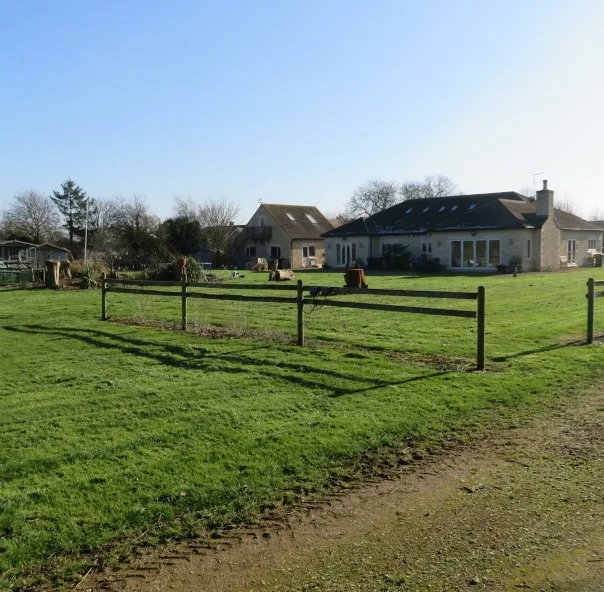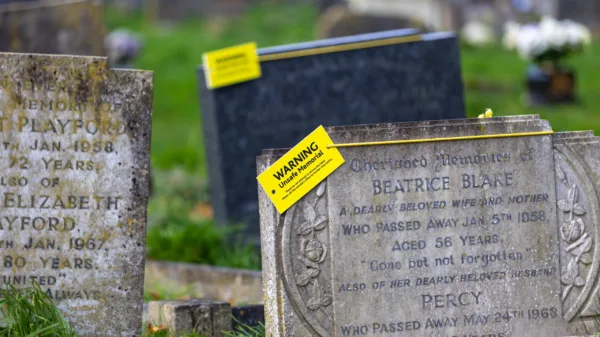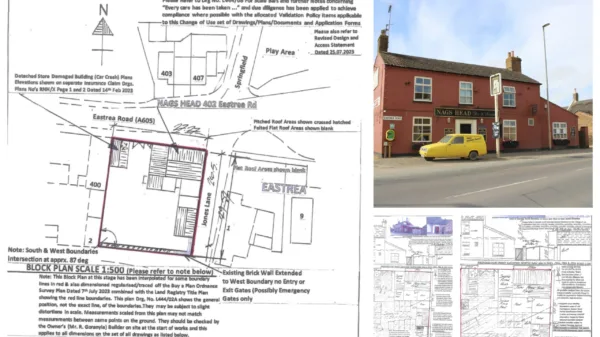A bid to have an agricultural occupancy condition removed will complicate attempts to sell a four/five bedroomed bungalow set in two and half acres of ground in a village outside of Peterborough.
Warren and Christine Garford lost an appeal to the Government Planning Inspectorate after Peterborough City Council refused to grant them a certificate of lawful use of development (LDC) on their Maxey home.
This would have allowed them to continue living there without complying with an agricultural occupancy condition imposed when the bungalow was built.
And it would have eased restrictions on its sale.
Elizabeth Jones, a Government inspector, dismissed their appeal, effectively putting them in a quandary for any potential sale.
Ms Jones said the issues go back to 2004 when outline planning permission was given with a condition that occupation would be limited to “a person employed within the crop spraying business or within agriculture”.
She explained that councils were entitled to do this to ensure strict control over retaining the character and appearance of the area within open countryside.

Warren and Christine Garford lost an appeal to the Government Planning Inspectorate after Peterborough City Council refused to grant them a certificate of lawful use of development (LDC) on their Maxey home.
Noting that the city council refused an application to remove the occupancy condition in 2018, she said the main issue for her whether the council was entitled to refuse to grant a lawful development certificate.
Ms Jones explained that where a breach of planning control involving the failure to comply with any condition of a planning permission has subsisted for a period of ten years, no enforcement action may be taken.
She said that in an LDC application it was necessary to demonstrate that this occurred ten years before the date of the application, which in this case is 8 February 2012.
The burden of proof and standard of proof was down to the applicants, she said.
“The appellants’ statutory declarations state that they have occupied the property since November 2011,” said the inspector.
“There is no dispute that at that time Mr Garford had a crop spraying business trading as ‘WTG Agricultural Contractors’ and Mrs Garford was a nurse.
“It is agreed that Mrs Garford has never been employed in the crop spraying business or within agricultural and Mr Garford was employed in the crop spraying business until at least 2014.
“Thus, it is argued that Mrs Garford as a nurse, has been in continuous breach of the agricultural occupancy condition for over ten years.”
But Ms Jones argued that the courts have held that conditions must be construed in a common-sense way in the context of the permission as a whole.
“Conditions should not be construed narrowly or strictly,” she said. “A condition is to be understood in conjunction with the reason for its imposition.
“A condition must be interpreted objectively; not by what the parties may or may not have intended but what a reasonable reader reading the condition in the context of the permission as a whole would understand.
“The planning purpose of the condition is to enable the council to maintain strict control over the nature of the use. In this case it was to restrict the occupancy of the property to a person employed within the crop spraying business or within agriculture.”
She added: “I accept that in this particular case the condition does not mention dependants/widow/widower as per the model condition and it would have been better had it done so.
“Indeed, the appellants raise the matter of consistency with reference to two planning permissions where the council has imposed the model agricultural occupancy condition.”
However, she insisted that “a reasonable person” would conclude the condition to mean, a person living at the property must be employed within the crop spraying business or within agriculture, in order for compliance with the condition to be satisfied.
“It does not necessarily exclude/prohibit other people who do not meet those criteria from living at the property in order for the planning purpose of the condition to be achieved,” she said.
“Thus, I consider that the appellants’ interpretation of the planning condition is unduly restrictive.
“The ultimate test in determining whether or not lawfulness might be achieved is whether the council could have taken enforcement action at any time during the whole of the relevant period.
“The evidence clearly shows that Mr Garford was ‘a person employed within the crop spraying business’ until at least 2014. Consequently, the council could not have taken enforcement action whilst Mr Garford was thus employed.
“I accept that Mrs Garford resided at the property also. However, in the context of a planning permission for a four-bedroom dwelling, it would be unreasonable and contrary to common sense to interpret the condition as meaning that only Mr Garford (being the one employed in crop spraying) could live there.
“For the reasons given above I conclude that the council's refusal to grant a certificate of lawful use or development in respect of 37 West End Road, Maxey, Peterborough, was well-founded and that the appeal should fail.”
Solicitors for the Garfords had argued that “it is strongly considered that the agricultural occupancy condition has been in breach for more than 10 years and continuing from the date of the CLEUD application as set out above and in the supporting evidence.
“It is therefore strongly considered that the breach of such condition is now immune from planning enforcement and the certificate should be issued by the LPA.
“Mrs Garford has been in continuous breach as registered nurse not employed in crop spraying or within agriculture for over 10 years and continuing since she first occupied the bungalow on 14 November 2011.
Farmers Weekly has previously advised that if other routes fail “if the owner advertises the property at a reasonable asking price for about 12 to 18 months and is unable to find a buyer, they can apply to the local authority for the condition to be removed, stating that there is no longer demand for an agricultural dwelling on the holding or in the area”.

























